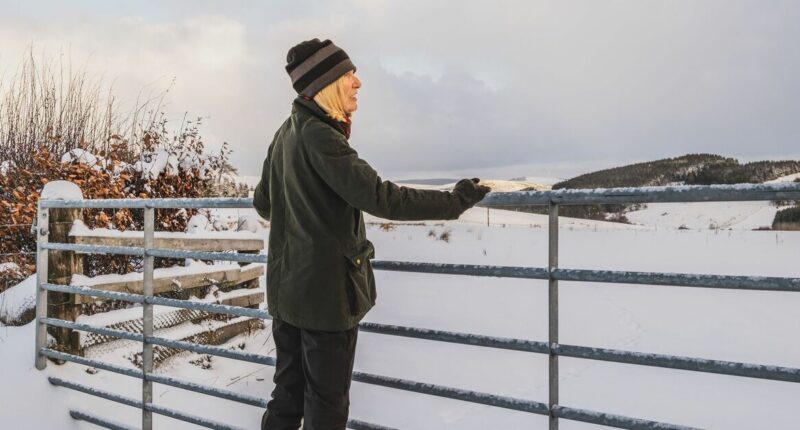Share this @internewscast.com
Residents across the UK are being alerted to prepare for a notable decline in temperatures this week, which might bring about significant health concerns for some individuals. The impending cold spell is likely to heighten the risk of health complications linked to frigid weather conditions.
While many may find the chill uncomfortable, for others, it poses a more critical health hazard, potentially exacerbating existing illnesses or leading to more severe conditions as temperatures fall sharply. The winter season generally increases people’s vulnerability to various health issues, such as flu, the common cold, and Covid-19.
Individuals with chronic health conditions might experience an aggravation of their symptoms as the mercury dips continuously day and night.
Consequently, it’s generally recommended that people, especially those at risk, keep their homes adequately warm and dress appropriately for the cold if venturing outside is necessary. This advice follows a yellow cold weather alert issued by the UK Health Security Agency (UKHSA), effective until 8 am on Friday, November 21.
The warning covers areas such as the North East, North West, East Midlands, West Midlands, and Yorkshire and The Humber. The UKHSA releases these alerts when significant temperature shifts could potentially affect individuals’ health and welfare.
The Met Office has confirmed that some UK regions might see snow and ice this week, succeeding a period of higher-than-usual temperatures. Dan Holley, the chief meteorologist at the Met Office, attributed the anticipated cold wave to high pressure over the northwest.
He emphasised that this will “drive a cold northerly flow from the arctic”, potentially bringing “much colder conditions than of late”. He also pointed out that current Met Office forecasts suggest temperatures could plummet to as low as -7C in some areas this week.
People most at risk from the cold
Guidance from the UKHSA notes that the following nine people are particularly at a serious risk of experiencing health issues during this cold period:
- People with long-term health conditions such as cardiovascular or respiratory disease, or a mental health condition
- People living in deprived circumstances
- Pregnant women
- People aged 65 years and over
- People who are housebound or have low mobility
- Young children – especially those aged 5 and under
- People with learning disabilities
- People at risk of falls
- People who live alone and may be unable to care for themselves
The agency also points out that several external factors could heighten your risk of being more vulnerable to the cold, such as substandard housing, snow and ice, and a higher prevalence of infectious diseases.
Keeping your home warm
One crucial measure you can take to mitigate any complications from the cold weather is to ensure your home is sufficiently heated when needed. Generally, it’s recommended that rooms you spend a significant amount of time in should be heated to at least 18C.
If your home isn’t warming up despite having the central heating or electric heater on, it might be time to make some minor adjustments. Check for any unsealed doors or windows that could be letting in a draught, as this can allow cold air from outside to infiltrate your home.
It’s also crucial to ensure your home is properly insulated, which can help minimise heat loss. If you’re worried about the potential health impacts of cold weather, consider signing up for UKHSA weather health alerts.
These provide early warnings for any severe temperatures that could affect your health. You can register for these alerts online here.













